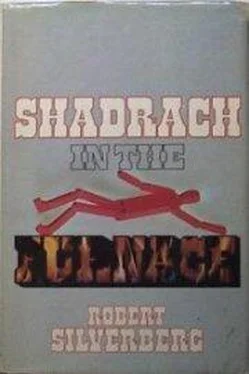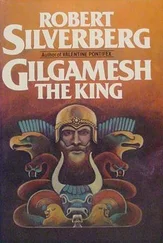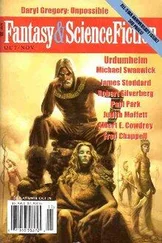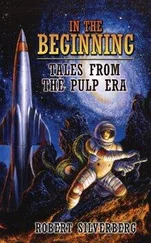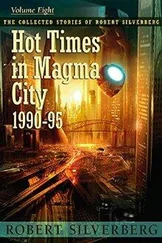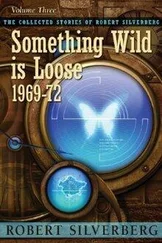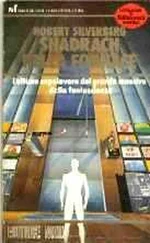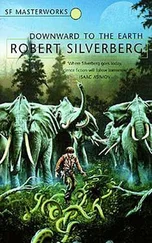“Two hundred eighty-two conspirators?” Shadrach asks. “Did it take that many to push one man out one window?”
“Who knows? The actual crime perhaps required no more than two or three perpetrators. But a great network of subordinate plotters must have been needed. Security devices had to be altered, guards distracted, cameras deflected. We believe it may have taken a dozen conspirators simply to remove the bodies of the killers from the plaza after they jumped.”
“To do what?”
Genghis Mao smiles blandly. “We believe,” he says, “that the assassins, after hurling Mangu from the window, deliberately jumped from the same window themselves to keep from being captured in the building. Confederates in the plaza immediately gathered up their bodies and drove off with them, while others removed all signs of their deaths from the pavement.”
Shadrach stares. “Horthy saw only one man falling, sir.”
“Horthy did not remain in the plaza to observe further developments.”
“Even so—”
“If the killers of Mangu did not leap after him,” the Khan says, eyes bright with the brightness of reason triumphant, “what did become of them? No suspicious persons were found in the tower after the crime.”
Shadrach is unable to find an appropriate reply to this. No comment he might make, he suspects, would be constructive. After a pause he says, clearing his throat, “Sir, if we could talk about your health again for a moment—”
“I told you. I feel fine.”
“The symptoms I’ve begun to detect are fairly serious ones, sir.”
“Symptoms of what?” Genghis Mao snaps.
Shadrach suspects that the Khan may be developing an aneurysm of the abdominal aorta — a defect in the wall of the great vessel that conveys blood from the heart. He asks Genghis Mao if he has felt any unusual discomfort, and the Chairman grudgingly admits recent sharp pains in the back and sides. Dr. Mordecai does not point out how this contradicts Genghis Mao’s claim of being in good health; but the admission does give Shadrach the upper hand, and he orders the Chairman back to bed for rest.
Peering through the eye of a fiber probe extending into Genghis Mao’s catheterized aorta, Shadrach confirms his diagnosis. The recent liver surgery, perhaps, has released emboli into the Chairman’s bloodstream, and one has somehow made its way against the arterial flow, lodging in the abdominal aorta and causing infection. Or perhaps not, but at any rate a tumor is taking form, and more surgery will be necessary. If it were anyone else, the risks of an operation so soon after a major organ transplant might be even greater than the risks of letting the aneurysm expand. But Shadrach has become amazingly casual about delivering up his venerable patient to the knife. Genghis Mao’s resilient body has been opened so often that it accepts frequent surgery as the natural state. Besides, the aneurysm is not far from the liver, and Warhaftig will be able to enter through the recent incision, which is only now beginning to heal.
The news annoys Genghis Mao. “I have no time for surgery now,” he says, irritated. “We’re still finding new conspirators everyday. I must give my full attention to the problem. And next week is Mangu’s stale funeral, at which I intend to preside in person, I—”
“The danger is critical, sir.”
“You always tell me that. I think you enjoy telling me that. You’re too insecure, Shadrach. Even if you didn’t manage to find some new crisis every few weeks I’d still keep you on the payroll. I like you, Shadrach.”
I don’t invent the crises, sir.”
“Even so. Can’t this wait a month or two?”
“We’d have to make a fresh cut in healed tissue then.”
“What of it? What’s one more slice?”
“Aside from that, the risks—”
“Yes,” Genghis Mao says. “The risks. What risks do I run by letting this thing sit?”
“Do you know what an aneurysm is, sir?”
“More or less.”
“It’s a tumor containing blood or a blood clot, in direct contact with the wall of an artery and causing deteriorative changes in the tissue surrounding it. Think of it as a balloon, gradually being inflated. When balloons get too big, they explode.”
“Ah.”
“Eventually this aneurysm could rupture — into the intestines, the peritoneum, the pleura, or the retroperitoneal tissues. Or it might cause an embolism of the superior mesenteric artery, producing intestinal infarction. The aorta itself could rupture spontaneously. There are several other possibilities. All fatal.”
“Fatal?”
“Invariably fatal. Agonizing pain, death usually within minutes.”
“Ah,” Genghis Mao says. “Ah. I see.”
“It could come at almost any time.”
“Ah.”
“Without warning.”
“I see.”
“We’d be helpless, once the aneurysm goes. No way of saving you, sir.”
“Ah. I see. Ah.”
Does he see? Yes. Certainly, visions of erupting aneurysms are floating before Genghis Mao’s basilisk eyes. The lean leathery cheeks contract in profound speculation; somber frowns furrow the bronze forehead. The Khan is troubled. He had not planned on being confronted with potential extinction this morning. Now, obviously, he contemplates the going of Genghis II Mao IV Khan from the world, and likes the idea no more than ever. The Permanent Revolution that has transformed the aching world requires a Permanent Leader; though Genghis Mao has often said, echoing Mao I’s similar words, that when one participates in a revolution one attains revolutionary immortality, one transcends the death of the individual by living on indefinitely within the permanent revolutionary ferment one has helped to create, it is plain that Genghis Mao prefers the other, less metaphorical species of immortality for himself. He glowers. He sighs. He gives his consent to this latest surgical interruption of his revolutionary labors.
Warhaftig is summoned. There are conferences; schedules are rearranged; details of the surgery are explained to the Khan. The blood vessels will be clamped above and below the aneurysm to arrest circulation temporarily while Warhaftig removes the aneurysm and installs a dacron or teflon prosthesis.
“No,” the Khan says. “Not a prosthesis. You can use a tissue graft, can’t you? There’s not much of a rejection problem with arterial tissue. It’s like stitching in a length of hose.”
Warhaftig says, “But dacron and teflon have proven perfectly—”
“No. I have enough plastic in me already. And the organ banks are overflowing with new material. Give me real aorta.” Genghis Mao’s eyes gleam. “Give me aorta from one of the recently convicted conspirators.”
Warhaftig looks at Shadrach Mordecai, who shrugs.
“As you wish,” the surgeon says.
Shadrach has lunch soon afterward with Katya Lindman. When they have eaten, they stroll in Sukhe Bator Square. He has spent more time than usual with Lindman since the night they went to Karakorum, although he has not slept with her again. He finds her more gentle, less threatening now, and is not sure whether she has changed or simply his attitude toward her; waking up and finding her sobbing may have had something to do with it. Certainly she has become warm and friendly, so much so that he suspects and fears she may even be falling in love with him; yet there is something reserved at her core, some ineluctable holding back, a zone of silence within her that strikes him as the enemy of love. There never were such sealed places in Nikki Crowfoot when Shadrach’s relationship with her was going well.
The midday sun is bright, the air soft, the day warm; golden flowers gleam in the terra-cotta tubs of shrubbery that decorate the plaza. Katya walks close to him, but their bodies do not touch. She has already heard of the new crisis. News of all sorts travels inordinately swiftly through the Grand Tower of the Khan, but especially news of the health of Genghis Mao. “Tell me what an aneurysm is,” she says. He gives her an elaborate explanation and describes the operation that will be performed. They are standing near the place where Mangu fell. When he finishes, Shadrach looks up and tries to imagine two or three assassins plummeting in Mangu’s wake, while lurking confederates spring forth to sweep up the shattered bodies and escape with them. Madness, Shadrach thinks. And this is the carefully considered theory propounded in all seriousness by the ruler of the world. Madness. Madness.
Читать дальше
